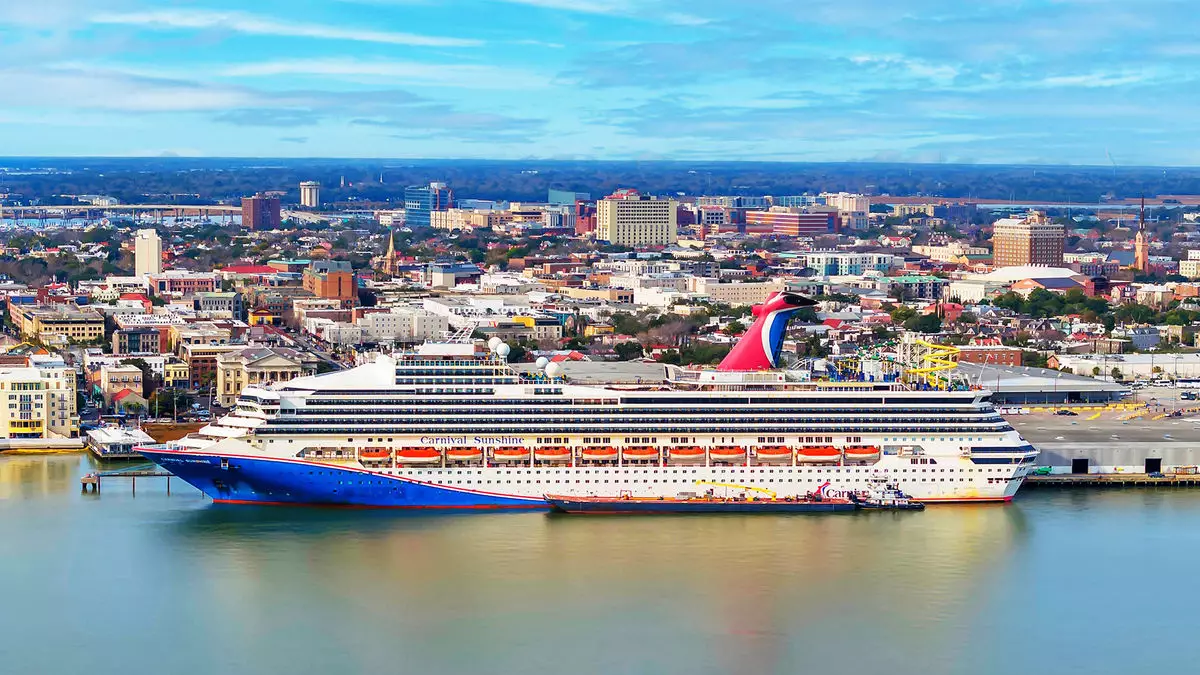Carnival Cruise Line has officially concluded its voyages from Charleston, South Carolina, with the last roundtrip cruise of the Carnival Sunshine. The ship’s departure marks not just the end of a sailing season but also a significant shift in the regional cruise landscape. This transition is emblematic of broader changes within the cruise industry, emphasizing evolving routes and competition for prime homeports. As it sails its final journey from Charleston, featuring stops in Nassau and Half Moon Cay, the Sunshine is primed for a new chapter in Norfolk, Virginia.
Beginning February 16, the Carnival Sunshine will embark on eight-night itineraries from its new homeport in Norfolk. This move represents an ambitious effort to extend Carnival’s reach and offer new experiences for cruisers. The shift to a year-round schedule in Norfolk illustrates Carnival’s strategy to capitalize on markets that show strong potential for growth. This relocation not only highlights the ship’s versatility but also allows Carnival to cater to a different demographic of travelers seeking unique adventures within the cruise industry.
The departure of the Sunshine signifies the culmination of a 14-year partnership between Carnival and the South Carolina Ports Authority. The port authority’s decision in 2022 not to renew its agreement with Carnival underscores evolving priorities and economic considerations in local governance. With Union Pier Terminal experiencing uncertainty about its future as a cruise facility, there are speculations about potential redevelopment plans. Such transformations could reshape Charleston’s identity as a cruise destination, reflecting either a rejuvenation or a complete pivot away from large cruise operations.
Currently, Union Pier Terminal’s cruise activity is in decline, with only occasional visits from select cruise lines like Royal Caribbean and Celebrity. The limited number of port calls moving forward signals a significant reduction in cruise tourism throughput. As Nashville shifts to focusing more on port calls rather than homeporting, the viability of Union Pier as a lucrative terminal remains tenuous. Future developments may well prioritize different sectors altogether, thereby influencing Charleston’s economic landscape in unforeseen ways.
Despite Carnival’s withdrawal, Charleston retains a connection to the cruise industry through American Cruise Lines, which specializes in smaller coastal vessels carrying fewer than 200 passengers. The line continues to establish Charleston as a key homeport while expanding its offerings. By incorporating overnight hotel stays into cruise packages, American Cruise Lines is strategically enhancing the overall experience for its guests, ensuring that Charleston retains a place in the cruise conversation even as larger ships depart.
The transition of the Carnival Sunshine from Charleston to Norfolk serves as a reminder of the dynamic nature of the cruise industry, showcasing shifts in partnership, market preferences, and consumer demands. The future of Charleston as a cruise destination may be uncertain, but opportunities remain through alternative operators aiming to provide memorable maritime experiences.


Leave a Reply